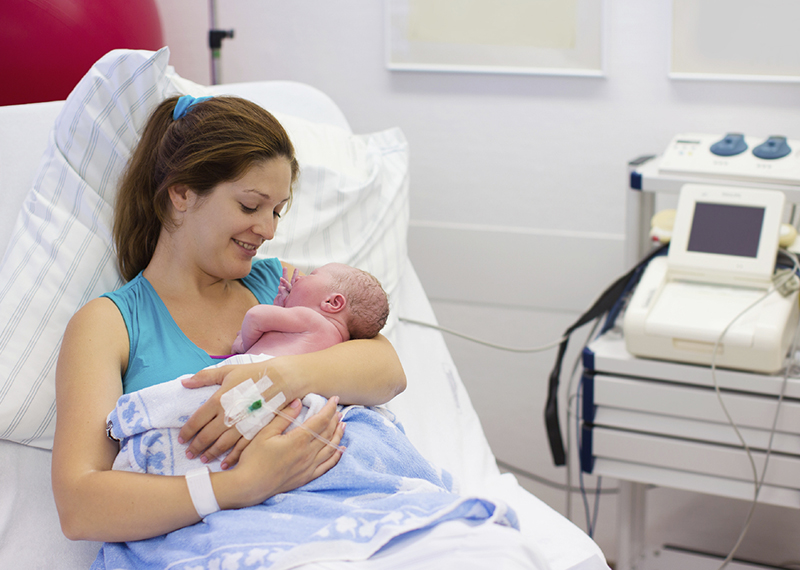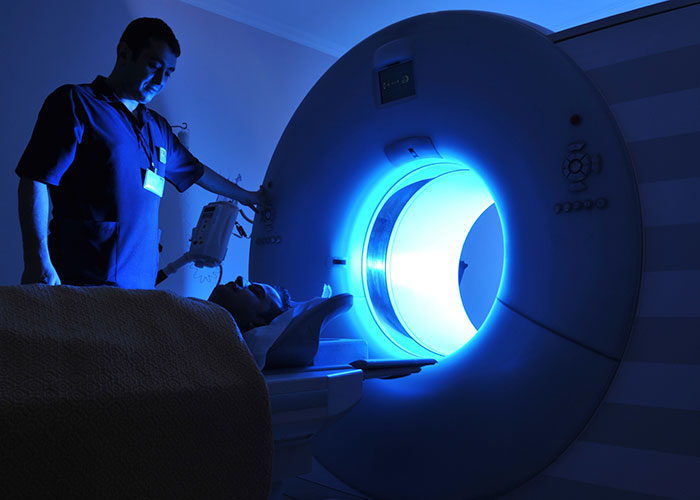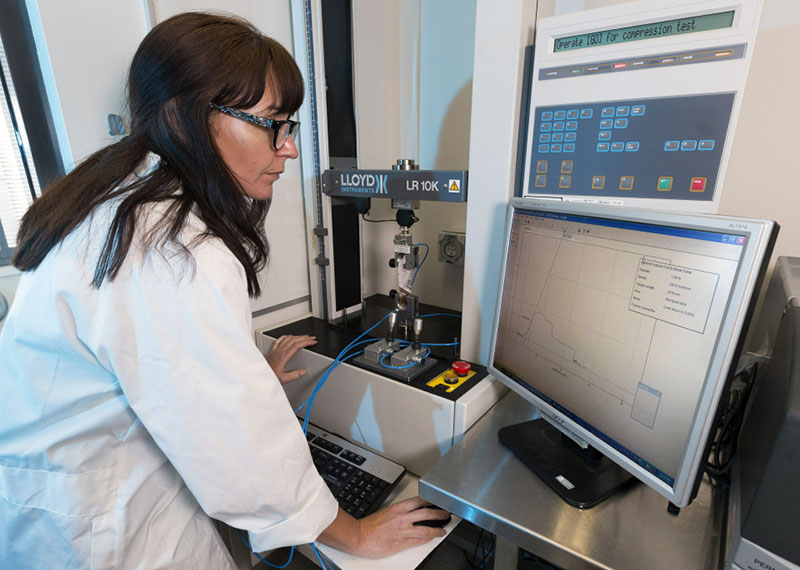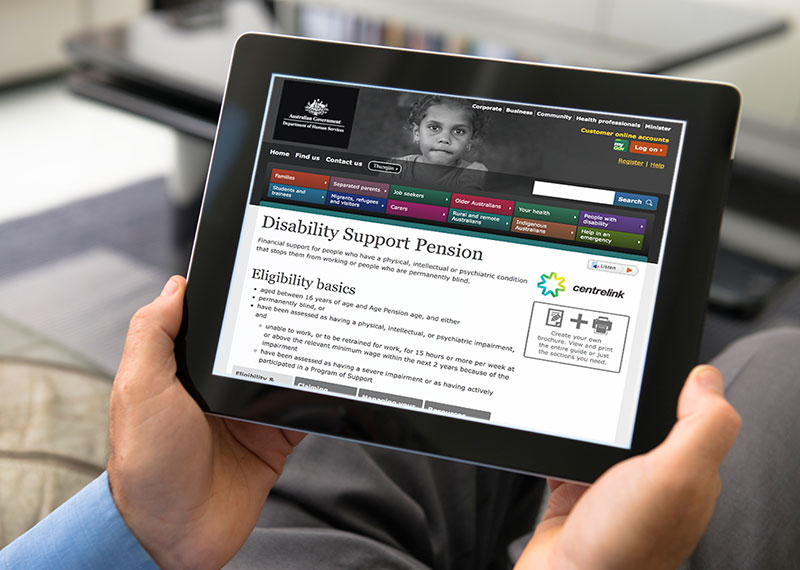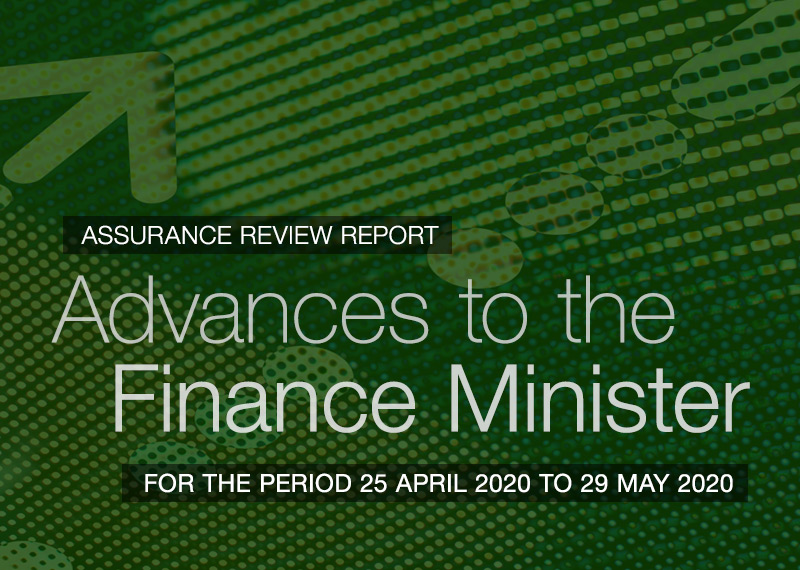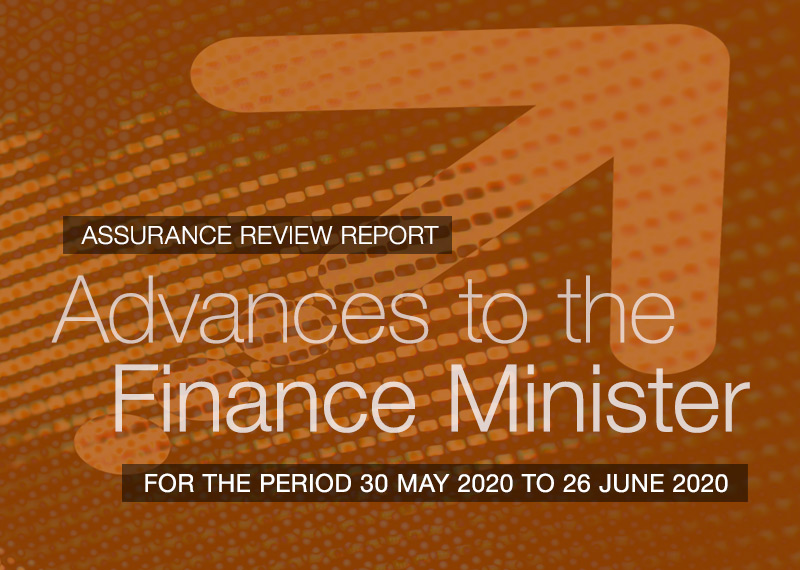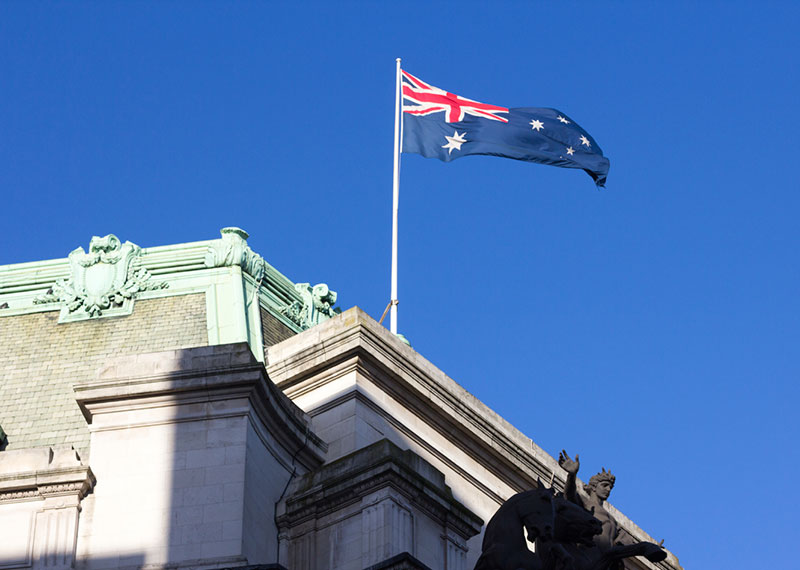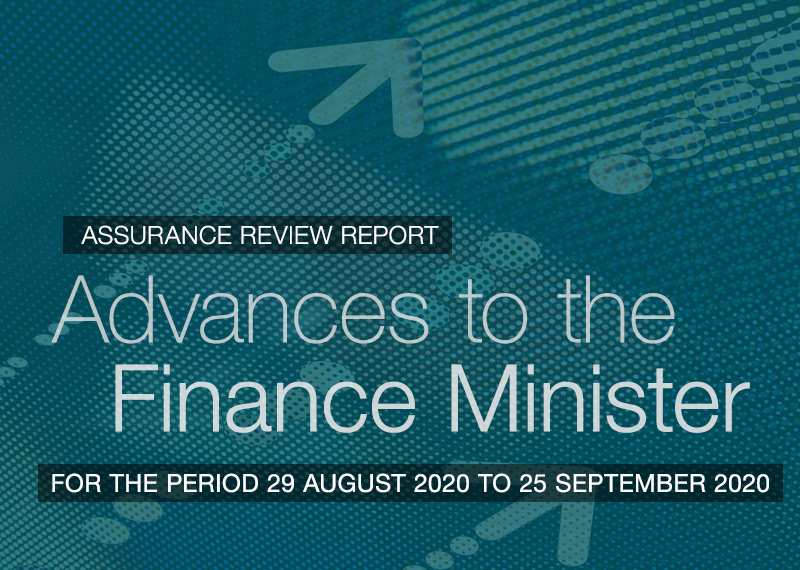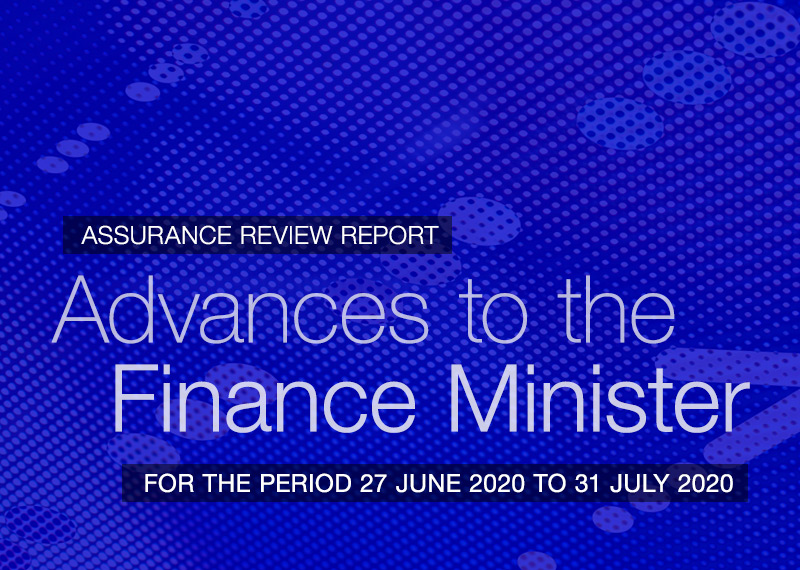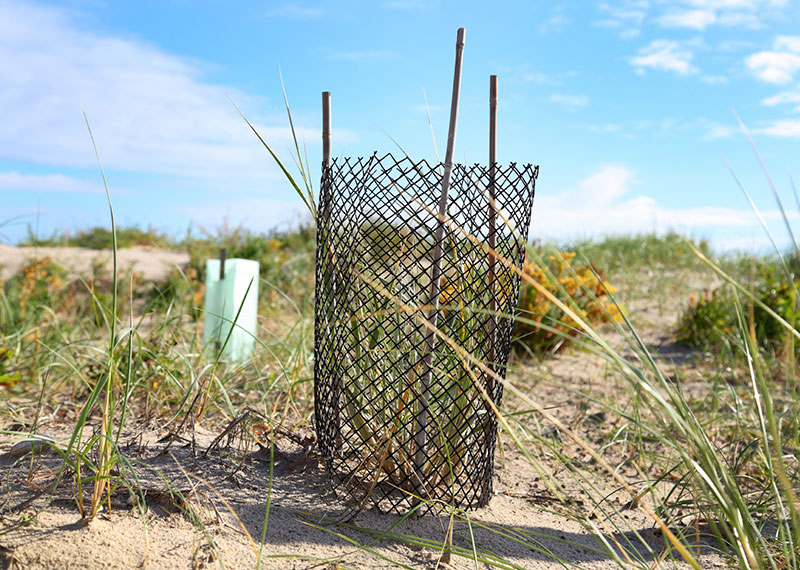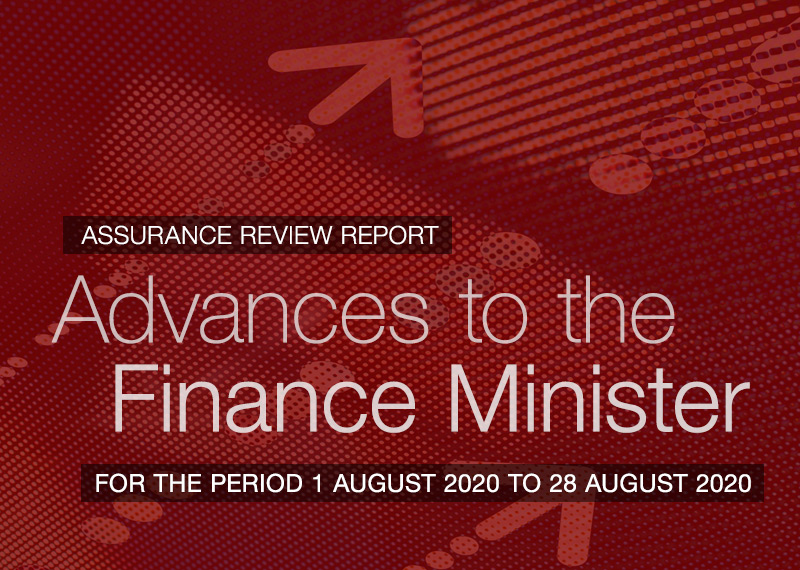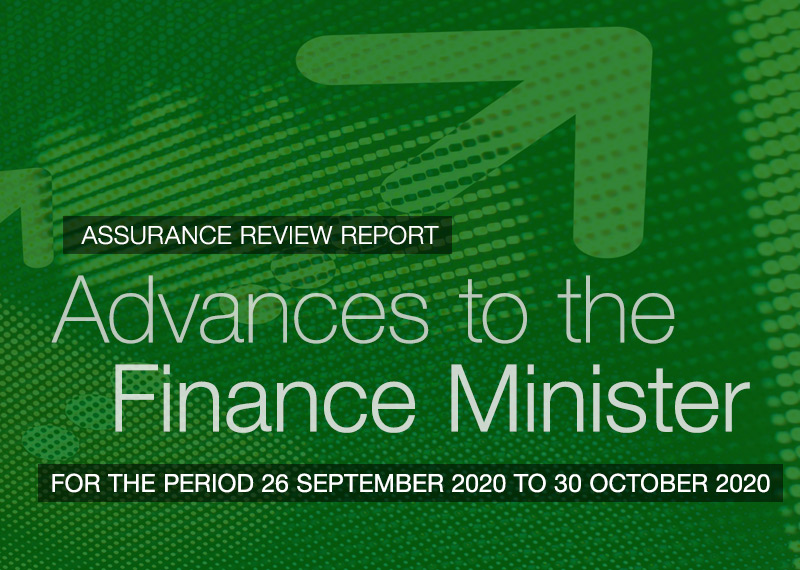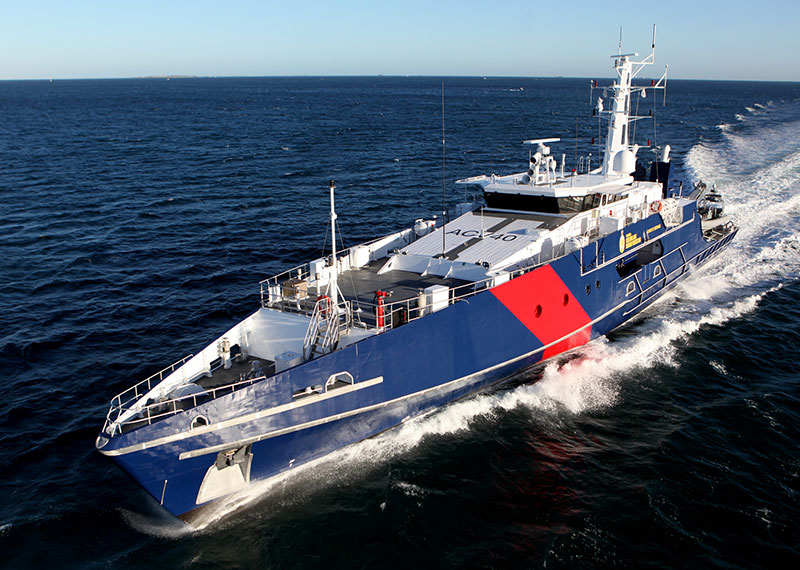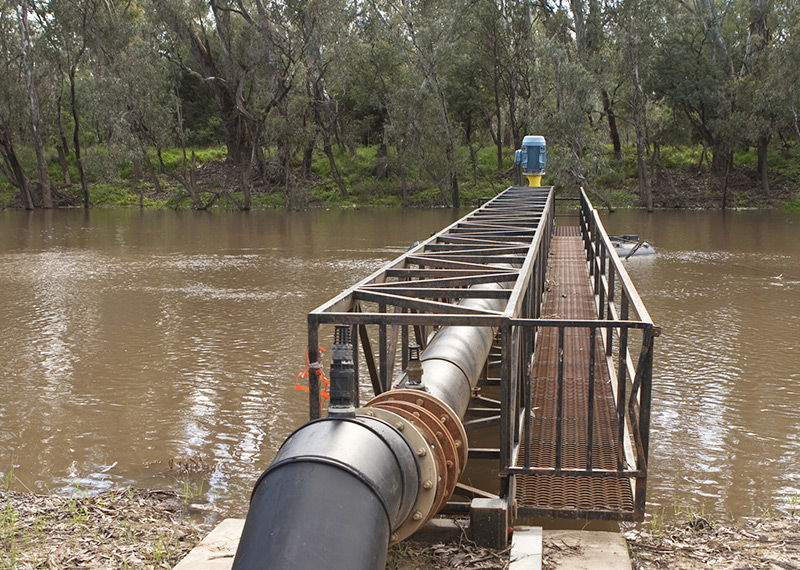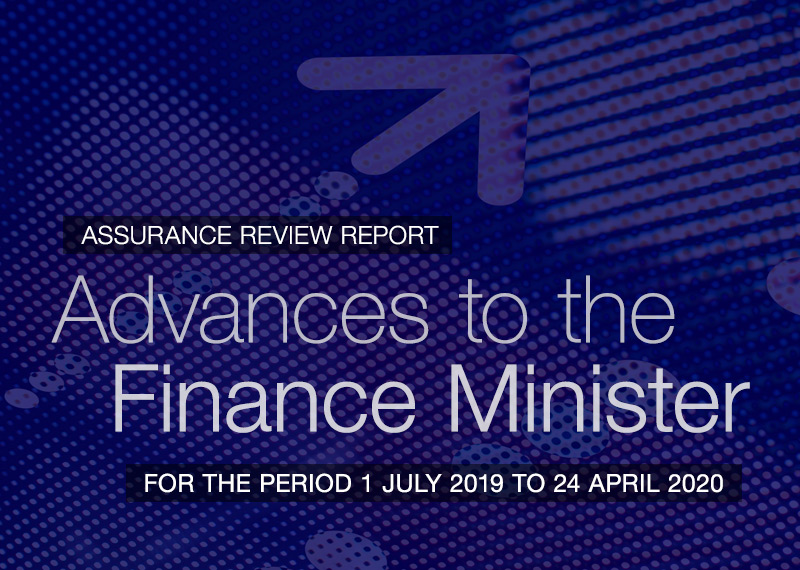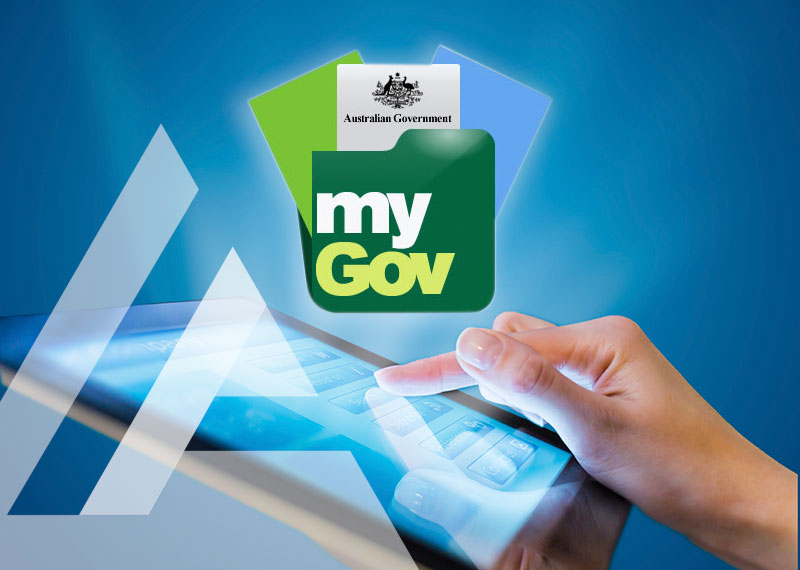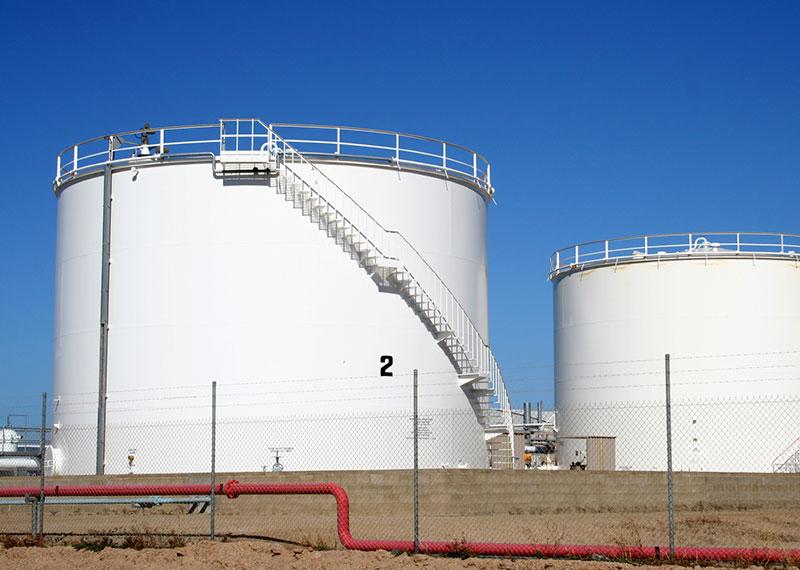Browse our range of reports and publications including performance and financial statement audit reports, assurance review reports, information reports and annual reports.
The Auditor-General responded on 18 June 2025 to correspondence from Senator David Shoebridge dated 23 May 2025, requesting that the Auditor-General conduct a review of the expenditure and disclosures of the Federal Court.
Please direct enquiries through our contact page.
The objective of the audit was to assess the effectiveness of the arrangements established by the Australian Antarctic Division (AAD), a division of the Department of the Environment, to support Australia’s Antarctic Program.
Please direct enquiries relating to reports through our contact page.
The audit objective was to examine Defence’s administration of Materiel Sustainment Agreements (MSAs) and the contribution made by MSAs to the effective sustainment of specialist military equipment.
Please direct enquiries relating to reports through our contact page.
The Auditor-General responded on 6 February 2025 to correspondence from Dr Anne Webster MP dated 17 January 2025, requesting that the Auditor-General conduct an investigation to examine whether the Australian Government's Housing Support Program granted funds in accordance with stated criteria.
Please direct enquiries through our contact page.
The audit objective was to assess the effectiveness of the Department of Health’s records management arrangements, including Health’s progress in transitioning to digital records management.
Please direct enquiries relating to reports through our contact page.
The audit objective was to assess the departments of Health and Human Services’ administration, including oversight and monitoring arrangements, for the Indemnity Insurance Fund.
Please direct enquiries relating to reports through our contact page.
The acting Auditor-General responded on 27 June 2024 to correspondence from Senator Andrew Bragg dated 5 June 2024, requesting that the Auditor-General conduct an investigation to examine the contract for legal services between King & Wood Mallesons and the Department of Industry, Science and Resources regarding PSI Quantum.
Please direct enquiries through our contact page.
The audit objective was to assess the effectiveness of the Department of Human Services’ administration of the Assistance for Isolated Children Scheme.
Please direct enquiries relating to reports through our contact page.
The audit objective was to assess the effectiveness of the Department of Health’s and the Department of Human Services’ management and administration of the Child Dental Benefits Schedule.
Please direct enquiries relating to reports through our contact page.
The objective of the audit was to examine the effectiveness of monitoring and payment arrangements under National Partnership Agreements.
Please direct enquiries through our contact page.
The audit objective was to assess the effectiveness of Health's implementation of the Diagnostic Imaging Review Reform Package, some three years into the five year reform period.
Please direct enquiries relating to reports through our contact page.
The audit objective was to assess the effectiveness of the Department of Health’s administration of the Medical Specialist Training Program.
Please direct enquiries relating to reports through our contact page.
The acting Auditor-General responded on 29 February 2024 to correspondence from Hon. Catherine King MP dated 29 January 2024, requesting that the Auditor-General to conduct an assurance review of the Australian Maritime Safety Authority’s (AMSA) Aids to Navigation (AtoN) procurement.
Please direct enquiries through our contact page.
The Auditor-General responded on 13 September 2021 to correspondence from Senator the Hon Eric Abetz dated 17 August 2021, requesting that the Auditor-General conduct an investigation to examine the Australian Broadcasting Corporation's (ABC's) payment of the damages and legal costs of one of its employees in a private defamation proceeding.
The Auditor-General provided a follow-up response to Senator the Hon Eric Abetz on 15 October 2021.
Please direct enquiries relating to requests for audit through our contact page.
The Auditor-General responded on 29 March 2019 to correspondence from Ms Cathy McGowan AO MP dated 5 March 2019, requesting that the Auditor-General investigate the conduct of a range of parties in relation to the announcement of grants under Round 3, Building Better Regions Fund.
Please direct enquiries relating to requests through our contact page.
This audit focuses on the NBA’s role in managing the nations blood supply, bearing in mind the NBA’s legislative responsibilities, national policy objectives and ongoing blood sector reforms.
The audit objective was to examine the effectiveness of the Department of Human Services’ administration of the Australian Childhood Immunisation Register.
Please direct enquiries relating to reports through our contact page.
The objective of the audit was to assess the effectiveness of the Australian Taxation Office's administration of the JobKeeper scheme.
Please direct enquiries through our contact page.
The objective of the audit was to assess the effectiveness of the Department of Immigration and Border Protection’s identity verification arrangements for applicants in the Citizenship Program.
Please direct enquiries relating to reports through our contact page.
The Australian National Audit Office (ANAO) must comply with the Commonwealth Procurement Rules (CPRs) when procuring goods and services. The CPRs govern how ANAO procures goods and services and are designed to ensure the ANAO and taxpayers obtain value for money.
Please direct enquiries through our contact page.
The objective of the audit was to assess the effectiveness of the Department of Employment’s administration of the Fair Entitlements Guarantee.
Please direct enquiries relating to reports through our contact page.
The audit objective was to assess the effectiveness of the Department of Infrastructure and Regional Development's regulation of passenger security screening at Australian domestic airports.
Please direct enquiries relating to reports through our contact page.
The objective of this audit was to assess how effectively the Defence Science and Technology Group (DSTG) administers the science and technology work it undertakes for the Australian Defence Organisation.
Please direct enquiries relating to reports through our contact page.
The objective of the audit was to assess the effectiveness of the design of, and award of funding under, the Living Safe Together grants programme.
Please direct enquiries relating to reports through our contact page.
The Auditor-General responded on 5 January 2021 to correspondence from Ms Kristy McBain MP dated 14 December 2020, requesting that the Auditor-General review the governance and outcomes of a 2019 tender process seeking leased office accommodation for the Department of Defence.
Please direct enquiries relating to requests for audit through our contact page.
The Auditor-General responded on 2 December 2024 to correspondence from Dr Helen Haines MP dated 4 November 2024, requesting that the Auditor-General conduct an investigation on the actions and decisions of the Priority Community Infrastructure Program (PCIP) and Investing in Our Communities Program (IOCP).
Please direct enquiries through our contact page.
The objective of the audit was to assess the effectiveness of the Australian Communications and Media Authority’s regulation of unsolicited communications.
Please direct enquiries relating to reports through our contact page.
The Auditor-General responded to, and then followed-up, correspondence from the Hon. Tony Burke MP dated 25 July 2017, requesting that the Auditor-General conduct an investigation into allegations arising out of a recent Four Corners program concerning the Murray-Darling Basin.
Please direct enquiries relating to requests for audit through our contact page.
The objective of the audit was to assess the effectiveness of the Australian Taxation Office’s administration of annual compliance arrangements with large corporate taxpayers.
Please direct enquiries relating to reports through our contact page.
The audit objective was to assess the Department of Social Services and the Department of Human Services’ administration of Disability Support Pension eligibility and review processes.
Please direct enquiries relating to reports through our contact page.
The audit objective was to assess the effectiveness of Defence’s administration of industry support and skill development programs.
Please direct enquiries relating to reports through our contact page.
The Auditor-General undertook a limited assurance review of the Department of Finance’s reporting and administration of the Advances to the Finance Minister (AFM) for the period 25 April 2020 to 29 May 2020.
Please direct enquiries through our contact page.
The Auditor-General undertook a limited assurance review of the Department of Finance’s reporting and administration of the Advances to the Finance Minister (AFM) for the Period 30 May 2020 to 26 June 2020.
Please direct enquiries through our contact page.
The objective of the audit was to examine the effectiveness of the design and governance of the National Water Infrastructure Development Fund.
Please direct enquiries relating to audits through our contact page.
The objective of the audit was to assess how effectively and efficiently the Australian Taxation Office managed contact centres as part of its overall service delivery.
Please direct enquiries relating to reports through our contact page.
The objective of the audit was to assess the effectiveness of the Attorney-General’s Department’s administration of the Indigenous Legal Assistance Programme.
Please direct enquiries relating to reports through our contact page.
The objective of the audit was to assess the effectiveness of the administration of procurement initiatives to support opportunities for Indigenous Australians.
Please direct enquiries through our contact page.
The audit objective was to assess the effectiveness and efficiency of the Department of Human Services’ management of Smart Centres’ Centrelink telephone services.
Please direct enquiries relating to reports through our contact page.
The objective of the audit was to assess the effectiveness of the Department of Foreign Affairs and Trade’s delivery of services to Australians travelling or residing abroad.
Please direct enquiries relating to reports through our contact page.
The objective of the audit was to assess the effectiveness of the planning and implementation of the COVID-19 vaccine rollout.
Please direct enquiries through our contact page.
The Auditor-General responded on 27 November 2018 to correspondence from Senator Hanson-Young dated 26 October 2018, requesting that the Auditor-General conduct an investigation to examine the use of grant funding from the Connections Project.
Please direct enquiries relating to requests for audit through our contact page.
The Auditor-General undertook a limited assurance review of the Department of Finance’s reporting and administration of the Advances to the Finance Minister (AFM) for the Period 29 August 2020 to 25 September 2020.
Please direct enquiries through our contact page.
The Summer 2009-10 National Skin Cancer Awareness Campaign's aim is to educate young Australians about the seriousness of, and their susceptibility to, skin cancer and to increase their adoption of the five key sun protection behaviours (Wearing a hat, staying in the shade, applying sunscreen, wearing sunglasses and sun protective clothing).
The Auditor-General undertook a limited assurance review of the Department of Finance’s reporting and administration of the Advances to the Finance Minister (AFM) for the Period 27 June 2020 to 31 July 2020.
Please direct enquiries through our contact page.
The audit objective was to assess the effectiveness of the Department of the Environment and Energy's award of funding under the 20 Million Trees Programme.
Please direct enquiries relating to reports through our contact page.
The objective of the audit was to assess the effectiveness of the Department of the Environment’s administration of the Biodiversity Fund program.
Please direct enquiries relating to reports through our contact page.
The objective of the audit was to assess the effectiveness of Defence’s implementation of the First Principles Review.
Please direct enquiries through our contact page.
The Auditor-General undertook a limited assurance review of the Department of Finance’s reporting and administration of the Advances to the Finance Minister (AFM) for the Period 1 August 2020 to 28 August 2020.
Please direct enquiries through our contact page.
The audit objective was to assess the effectiveness to date of the management of the approach to transition the disability services market to the National Disability Insurance Scheme (NDIS) market arrangements.
Please direct enquiries relating to reports through our contact page.
The Auditor-General voluntarily discloses official expenses and they are updated here every six months. You can subscribe to be notified when the expenses are updated.
Please direct enquiries about the Auditor-General's expenses through our contact page.
The audit objective was to assess the effectiveness of the management of international travel restrictions during the COVID-19 pandemic.
Please direct enquiries through our contact page.
This information report would cover Australian Government grants reporting following on from Auditor-General Report No. 7 2021–22 Australian Government Grants Reporting. The report would provide transparency of, and insights on government grants expenses and Commonwealth entities’ self-reporting of grants on GrantConnect.
Please direct enquiries through our contact page.
The Auditor-General undertook a limited assurance review of the Department of Finance’s reporting and administration of the Advances to the Finance Minister (AFM) for the Period 26 September 2020 to 30 October 2020.
Please direct enquiries through our contact page.
The audit on the Defence Project Management of the SDSS Upgrade Project examined Defence project management procedures and practices in the information management systems domain.
The policy for responsible use of artificial intelligence (AI) in government in government includes mandatory requirements to nominate accountable officials and publish AI transparency statements. This statement provides details of the Australian National Audit Office (ANAO) implementation of these policy requirements.
Please direct enquiries through our contact page.
The objective of the audit was to assess the effectiveness of the Australian Customs and Border Protection Service's management of the Cape Class patrol boat program.
Please direct enquiries relating to reports through our contact page.
The objective of the audit was to assess the effectiveness of the award of funding under the first round of the Safer Streets programme.
Please direct enquiries relating to reports through our contact page.
The objective was to examine whether the award of funding under the Supporting Reliable Energy Infrastructure Program was informed by an appropriate assessment process and sound advice that complied with the Commonwealth Grant Rules and Guidelines.
Please direct enquiries through our contact page.
The objective of the audit is to assess the effectiveness of the Department of the Prime Minister and Cabinet’s implementation of food security initiatives for remote Indigenous communities.
Please direct enquiries relating to reports through our contact page.
The objective of the audit was to assess the effectiveness of the Australian Securities and Investments Commission’s administration of enforceable undertakings.
Please direct enquiries relating to reports through our contact page.
The purpose of this campaign is to inform people of the Child Care Tax Rebate.
The Auditor-General undertook a limited assurance review of the Department of Agriculture and Water Resources’ assessment of the performance of New South Wales under the National Partnership Agreement on Implementing Water Reform in the Murray-Darling Basin relevant to the protection and use of environmental water for the 2014–15 and 2015–16 financial years.
Please direct enquiries through our contact page.
This campaign aims To attract the right people to sustain and enhance Defence capability by generating enough enquiries to successfully meet Australian Defence Force's (ADF) recruitment target. The Navy TVC has been developed to enhance and support the current suite of Navy commercials.
The campaign aims to promote the role of travel advisories and encourage Australians to use them as a routine part of overseas travel preparation. It seeks to reduce the number of Australians encountering difficulties overseas, and by leading more Australians to use safe travel tools, the campaign aims to improve the Government's ability to be able to communicate with and assist Australians in the event of a consular emergency.
In February 2008, the Government agreed its Climate Change Policy Framework built on three pillars: reducing Australia's greenhouse gas emissions; adapting to climate change that we can't avoid; and helping to shape a global solution. Phase One of the campaign is the Householder Action advertising campaign, designed to empower householders to take action on climate change and to inform the community about measures for compensating low income households.
The objectives of the campaign are to increase knowledge and awareness, among people for whom English is not a convenient language, of the Education Tax Refund, the need to keep receipts, eligibility requirements, and how to claim the refund, with the overall objective of encouraging eligible Australians to make a claim for a rebate.
The campaign's objectives are to raise awareness, among those for whom English is not a convenient language, of the harms and costs to young people, their families, communities and society associated with drinking to intoxication, to encourage young people and their parents to question the acceptability and impact of intoxicated behaviour, to highlight the influence that parental attitudes to alcohol misuse and adult behaviour and drinking to intoxication can have on others and provide referral and support information for those who recognise a need to seek help.
The Economic Security Strategy (ESS) campaign is intended to inform the community of aspects of the Australian Government's response to the global financial crisis. This component of the campaign is designed to raise awareness, among those for whom English is not a convenient language, of the financial assistance available, in the form of lump sum payments, and of access and eligibility requirements.
The ABHI campaign is an information campaign, largely in cooperation with other states (excl Victoria) which promotes improved public health and reduced incidence of chronic disease. This component of the campaign takes a culturally relevant approach and includes advertising content and messages delivered through Indigenous media channels.
The Auditor-General undertook a limited assurance review of the Department of Finance’s reporting and administration of the Advances to the Finance Minister (AFM) for the Period 1 July 2019 to 24 April 2020.
Please direct enquiries through our contact page.
The objective of the audit was to assess the effectiveness of the Australian Competition and Consumer Commission in managing compliance with fair trading obligations.
Please direct enquiries relating to reports through our contact page.
The audit objective was to assess the effectiveness of Defence’s management of the acquisition of medium and heavy vehicles, associated modules and trailers for the Australian Defence Force.
Please direct enquiries relating to reports through our contact page.
The ANAO's objectives in auditing the sale were to:
- review the extent to which the Government's objectives for the sale were achieved;
- review the management of the sale process; and
- to assess ongoing Commonwealth exposures and responsibilities.
The objective of this review was to determine whether the establishment and early implementation of the Fair Entitlements Guarantee Recovery Program by the Department of Jobs and Small Business has provided a sound basis for achieving value for money.
Please direct enquiries through our contact page.
The next Financial and Performance Reporting Forum is scheduled for Friday, 28 November 2025. Further information about the forum will be announced closer to the event date. If you have any questions regarding the upcoming forum, please contact External.Relations@anao.gov.au.
For any enquiries, please contact External.Relations@anao.gov.au
The Deputy Auditor-General responded on 5 January 2017 to correspondence from the Hon. Mark Dreyfus QC MP on 4 November 2016 requesting the Auditor-General investigate if grants awarded under the Apprenticeship Training Alternative Delivery Pilots program represented value for money for the Australian taxpayer.
Please direct enquiries relating to requests for audit through our contact page.
The Auditor-General undertook a limited assurance engagement of the Department of Finance’s management of the lease between the Commonwealth of Australia and the New South Wales Rifle Association over the Malabar Headland. The limited assurance engagement examined whether the management was, in all material respects, in accordance with the Commonwealth Property Management Framework.
Please direct enquiries through our contact page.
The Auditor-General responded on 27 February 2017 to correspondence from Dr Jim Chalmers MP dated 29 December 2016, requesting that the Auditor-General conduct an audit of aspects of the lease arrangements for the rifle range at Malabar Headland in New South Wales (NSW).
Please direct enquiries relating to requests for audit through our contact page.
The audit objective was to assess the effectiveness of the Department of Immigration and Border Protection in delivering high quality interpreting services to its clients.
Please direct enquiries relating to reports through our contact page.
The objective of the audit was to assess the effectiveness of the Department of Human Services’ implementation of myGov as at November 2016.
Please direct enquiries relating to reports through our contact page.
The objective of the audit was to assess the effectiveness of the Department of the Prime Minister and Cabinet’s management of initiatives to supply low aromatic fuel to Indigenous communities.
Please direct enquiries relating to reports through our contact page.
The Defence Force Recruitment Campaign is designed to attract the right people to sustain and enhance Defence capability by generating enough enquiries to successfully meet Australian Defence Force's (ADF) recruitment target. The Navy Brand advertising is intended to convey the key messages associated with the Navy.
This campaign aims to attract the right people to sustain and enhance Defence capability by generating enough enquiries to successfully meet Australian Defence Force's (ADF) recruitment target. The cut down versions of the Navy television commercials are intended to provide greater flexibility in placing the advertisements and without loss of impact.
This campaign aims to attract the appropriate people to sustain and enhance Defence capability by generating enough enquiries to successfully meet Australian Defence Force's (ADF) recruitment target. The campaign is designed to create a greater level of awareness, among Australia's Indian and Arabic populations, of the Australian Defence Force (ADF) as an employer of culturally diverse Australians.
The campaign objectives are to raise awareness of undergraduate and graduate health positions in the ADF and to communicate that the roles provide the opportunity for intelligent, everyday people to do extraordinary and worthwhile jobs
The campaign aims to encourage nurses and midwives who are currently outside the nursing workforce to return to nursing by providing cash bonuses of up to $6,000 to eligible nurses and $1,000 to the employers as retraining contribution.
The campaign's objectives are to encourage people to lodge an 07/08 tax return and to update their address and direct deposit details with the ATO, to manage expectations about the arrival date for the payments and provide information about what to do if the payments are not received.
This campaign was designed to educate Australians about the importance of protecting themselves against avoidable blindness and vision loss.
The aim of the campaign is to contribute to a reduction in the uptake of methamphetamines and other illicit drugs among young Australians, by raising awareness of the harms associated with drug use and by encouraging and supporting decisions not to use. It is also intended to encourage young people using methamphetamines to reconsider their use and direct them to relevant support, counselling and treatment services.
The campaign's objectives are to encourage people, for whom English is not a convenient language, to lodge an 07/08 tax return and to update their address and direct deposit details with the ATO, to manage expectations about the arrival date for the payments and provide information about what to do if the payments are not received.
The campaign's objectives are to encourage people to lodge an 07/08 tax return and to update their address and direct deposit details with the ATO, to manage expectations about the arrival date for the payments and provide information about what to do if the payments are not received.
The campaign's objectives are to encourage people, for whom English is not a convenient language, to lodge an 07/08 tax return and to update their address and direct deposit details with the ATO, to manage expectations about the arrival date for the payments and provide information about what to do if the payments are not received.
The campaign's objectives are to encourage people to lodge an 07/08 tax return and to update their address and direct deposit details with the ATO, to manage expectations about the arrival date for the payments and provide information about what to do if the payments are not received.
The campaign is a community awareness campaign designed to raise awareness of Australia's quarantine laws and of the particular risks of bringing foreign items into Australia.
The Digital Switchover campaign aims to provide all Australians with a smooth transition from analogue to digital television by 31 December 2013. The first phase of this campaign aims to raise awareness and provide general information to people about the Digital Switchover. This phase includes the introduction of a labelling scheme, to identify whether TVs are digital ready or require a set top box.
The campaign's objective is to inform Centrelink customers who are in or commence a same sex relationship about changes to their entitlements and obligations as a result of the Same Sex Relationships (Equal Treatment in Commonwealth Laws - General Law Reform) Act 2008.
The campaign's objective is to promote the National Security Hotline (NSH) and remind Australians to be vigilant and report possible signs of terrorism to the NSH.
The Australian Government has identified cancer as one of the seven National Health Priority Areas. The campaign targets young Australians 13-24 years of age and young adults 18-24 years of age as they have the worst sun protection behaviours and the highest frequency of sunburn. The campaign aims to educate young Australians about the importance of protecting themselves from skin cancer in five ways (hat, shade, sunscreen, sunglasses and sun protective clothing).
The purpose of the campaign is to:
- raise traveller awareness of SmartGate (an automated passenger processing system utilising ePassports);
- encourage travellers to choose to use SmartGate;
- increase current usage; and
- guide travellers how to use it before they arrive at the Customs border.
The use of SmartGate is voluntary as eligible travellers have the option of being processed manually by a Customs Officer.
First Home Saver Accounts are a new initiative to assist eligible Australians to save for their first home through a combination of government contributions and low taxes, in superannuation style savings accounts with account providers. The campaign will set the context for the new initiative and raise awareness. The campaign elements are to articulate the eligibility criteria, individual obligations, entitlements and accessibility rules, as well as explain the respective roles and responsibilities of account providers and government administrators and regulators.
The campaign is a community awareness campaign designed to raise awareness of Australia's quarantine laws and of the particular risks of bringing foreign items into Australia.
Response completed as a limited scope assurance review.
The Auditor-General responded on 9 September 2016 to correspondence from the Hon Brendan O’Connor MP on 15 June 2016 regarding the appropriateness of arrangements concerning the Liberal Party of Australia entity Parakeelia Pty Ltd.
Please direct enquiries relating to requests for audit through our contact page.
The aim of the May to July 2010 burst of campaign advertising for the National Security Campaign is to build upon previous phases of the campaign through continuing to remind Australians to remain vigilant and to report possible signs of terrorism related activity to the National Security Hotline on 1800 1234 00.
The campaign for the National STI Prevention Program is designed to inform young Australians aged 15-29 years about the transmission, symptoms, treatment and prevention of STIs, and encourage safe sexual behaviour to contribute to a reduction in the prevalence of sexually transmissible infections among this age group.
The overall aim of the National Drugs Campaign is to contribute to a reduction in the uptake of illicit drugs among young Australians, by raising awareness of the harms associated with drug use and encouraging and supporting decisions not to use. It is also intended to encourage young people using methamphetamines to reconsider their use and direct them to relevant support, counselling and treatment services.
The Digital Switchover campaign aims to provide all Australians with a smooth transition from analogue to digital television. The first region to switch over to digital television will be Mildura/Sunraysia on 30 June 2010 and the second region will be Regional South Australia & Broken Hill on 15 December 2010. Tailored local communications will be launched in Regional South Australia and Broken Hill from 28 March 2010, and they will include the date of digital switchover for that region.
The overall aim of the National Drugs Campaign is to contribute to a reduction in the uptake of illicit drugs among young Australians, by raising awareness of the harms associated with drug use and encouraging and supporting decisions not to use. It is also intended to encourage young people using methamphetamines to reconsider their use and direct them to relevant support, counselling and treatment services.
The overall aim of the campaign activity is to contribute to a reduction in the uptake and prevalence of smoking among young Australians.
The Digital Switchover campaign aims to provide all Australians with a smooth transition from analogue to digital television. Phase Two is a two-pronged approach of multi-regional communications targeting the broader Australian population, combined with further targeted communications in each switchover area prior to the analogue signals being switched off. The first region to switch over is the Mildura/Sunraysia region on the 30 June 2010.Tailored local communications including NESB materials will be targeted to this region from January 2010 untiltwo weeks past the switchover date.
This campaign aims to attract the right people to sustain and enhance Defence capability by generating enough enquiries to successfully meet Australian Defence Force's (ADF) recruitment target. The campaign has been developed to position the ADF as a preferred employer among the target audience by establishing the brand positions of each of the services and by advertising a range of positions offered in the ADF.
The Digital Switchover Campaign aim is to provide all Australians with a smooth transition from analogue to digital television by 31 December 2013. The second phase of the campaign aims to maintain awareness levels and drive conversion, especially in areas where the switchover is imminent, while also ensuring that that those households who have not yet converted to digital are aware of what will happen if they don't.
The National Binge Drinking Campaign's objectives are to raise awareness of the harms and costs to young people, their families, communities and society associated with drinking to intoxication, to encourage young people and their parents to question the acceptability and impact of intoxicated behaviour, to highlight the influence that parental attitudes to alcohol misuse and adult behaviour and drinking to intoxication can have on others and provide referral and support information for those who recognise a need to seek help.
This campaign forms part of the main Defence Force Recruitment (July-December 2009) Campaign and is intended to raise awareness of a diverse range of jobs available in the Air Force.
The campaign's objective is to raise awareness and understanding of the Secure and Sustainable Pension reforms announced in the 2009-10 Budget measures, and in particular how they relate to the individual circumstances of current pension recipients.
The ABHI campaign is an information campaign, largely in cooperation with other states (excl Victoria) which promotes improved public health and reduced incidence of chronic disease. The campaign aims to update public perceptions on lifestyle choices and risk factors leading to obesity and resultant disease. It is anticipated that people will take positive action to be more active and modify their diet, leading to a reduction in instances of diseases. This is the second phase of advertising for the campaign.
The campaign is intended to inform employers and members of the Reserves of their rights and obligations, and raise awareness and understanding of the benefits associated with the employment of Reserves.
The campaign aims to educate the public that people living with Alzheimer's and/or Dementia are at risk of becoming a missing person, and the public can help by 'keeping an eye out' for these people who may affected by memory loss and while in a state of confusion, may not be able to find their way home or remember who they are. The campaign also aims to drive people to seek further information, via the website and call centre.
The campaign is designed to raise awareness and prompt call to action in Micro and SME businesses eligible for the Small and General Business Tax Break (BTB).
The campaign is designed to raise awareness and prompt call to action in Micro and SME businesses eligible for the Small and General Business Tax Break (BTB).
To inform jobseekers of the change from the Job Network system to Job Services.



